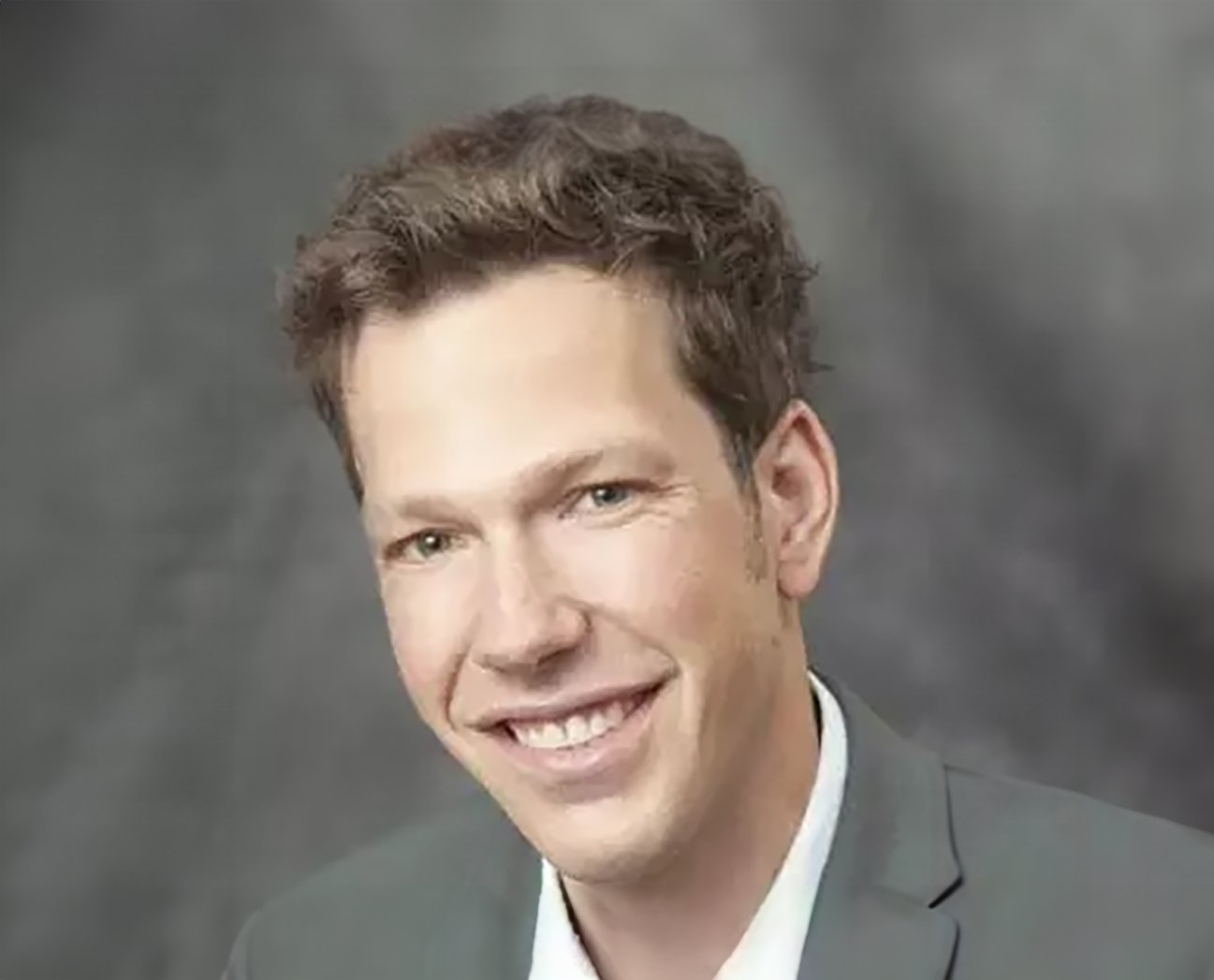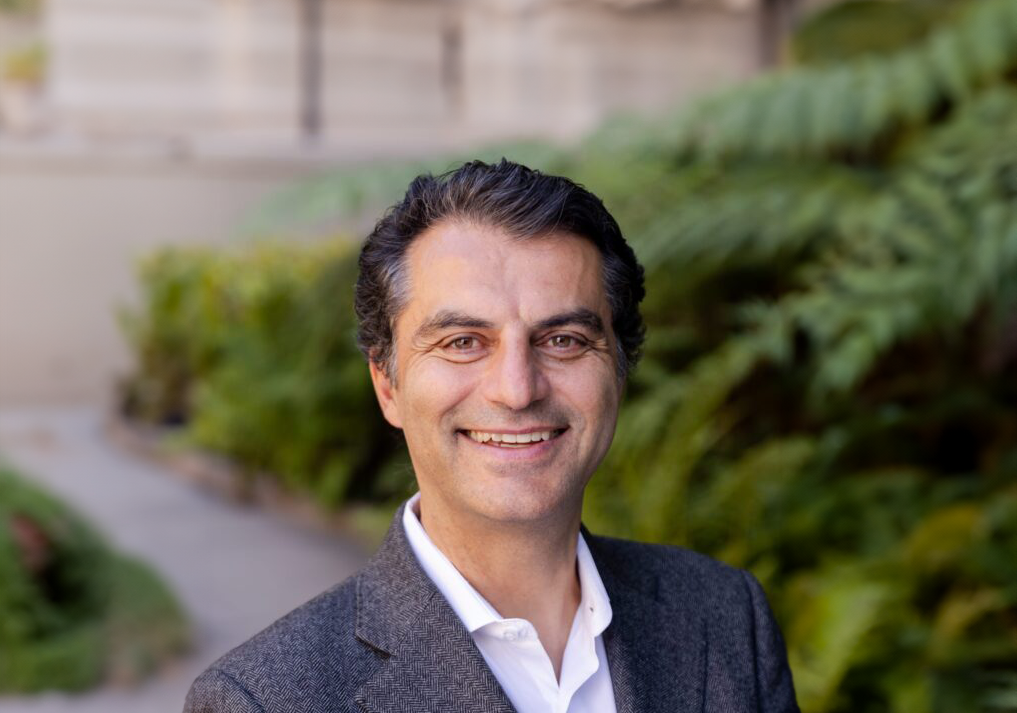
KIET HOA – MARCH 15, 2024
Ned Augenblick is a professor in the Economic Analysis and Policy Group at Berkeley Haas. His focus is on Behavioral Economics. In November 2023, I spoke with Professor Augenblick through Zoom about his research paper draft “Retrieval Failures and Consumption Smoothing: A Field Experiment on Seasonal Poverty” and other topics of interest.
Hoa: I would like to start this interview by exploring your background in economics. What sparked your interest in this subject?
Augenblick: When I was an undergrad, I was a psychology and economics double major, and I loved both of them.
I think econ fits with the mathematical side of how I analyze things. It’s more formal and its structure makes sense to me. And so it’s a nice combination. Economics also allows you to study anything about human behavior. It feels very broad to me. The subject uses certain rigorous methods, which I’m happy with. It was a good fit for me.
Hoa: So it was a natural path from your undergraduate studies.
Augenblick: Yeah, I mean, to some extent. You know, it’s funny how different you look back on your life and the small events that change the course of things. I had a professor who taught game theory. He was just like, “Hey, you seem pretty good at this. F.Y.I., this is an interesting career.” Honestly, I had never thought about it before then. I don’t know what would have happened if we didn’t have that conversation.
I guess the best thing to say is it makes sense now. Was it obvious to me at the time that this was my path when I was a junior? No. It was senior year and my professor mentioned it.
Well, it all worked out in the end.
Hoa: Your psych and econ double major led you into behavioral economics. A lot of your research is about that subject. How do you think psychology complements the study of economics?
Augenblick: Economics, at its core, is just about people making decisions, and economists want to model those in stark, formal ways that make a lot of sense as a starting point. But then there’s psychology in the sense of bounded rationality, emotions that cause people to deviate in regular ways.
To have a good theory, you must consistently incorporate some of that stuff. That means if we only use the stark theory, we probably will get bad predictions.
Hoa: Then, psychology can add to the current theories and maybe disprove some theories.
Augenblick: I mean, “disprove” is not the best thing to say. I think it’s a little judgmental. I think all theories are wrong in some way.
It’s almost logically true. A theory is a simplification. Simplification means you’re wrong because you’re removing some complexity. So, the goal is to try to add more to the model and gain better predictions, but any of those models are wrong, too.
“All theories are wrong.” I didn’t say that, but it’s a famous quote. All theories are wrong, but how wrong is it? That makes better sense.
Hoa: Building off your interest in behavioral economics, your draft on retrieval failures and consumption smoothing was about how memory could affect lower-income households’ ability to plan their savings and expenditures. So, could you briefly describe your findings thus far for our readers who aren’t aware?
Augenblick: The starting view is if people have a piece of information in their head that they will use, it’s easy for them to draw on it. It’s easy for them to connect it with other pieces of information. But sometimes, you think of multiple things at once and try to put them together. It’s not like that process happens automatically.
That’s an interesting insight, but the question is, does it actually impact behavior in a meaningful way? A lot of classical economists would argue that some of these psychological biases happen, but they only minorly affect behavior and they’re not things we should be concerned about.
But behavioral economists say, “Look, it’s impacting behavior in a pretty meaningful way.” So, we conducted research during the hunger season in Zambia. Here, people have a harvest; then they have to figure out how to spend that harvest wealth, which is effectively all of their wealth over the course of the year.
Commonly, they end up consuming more than they do at the beginning of the hunger season. You would think they’re doing it thoughtfully. But when you talk to people, that’s not really what’s happening.
It’s just that they haven’t thought through all of the stuff that will happen and appreciate how much they need to save. In particular, we don’t appreciate all the things that can go wrong and it’s hard to acknowledge what comes next.
I’ll give you an example. I was working on a paper 15 minutes ago and remembered we needed to meet when my calendar invite came. I knew we needed to meet, but I wasn’t acting on it because it wasn’t in my mind then.
Another way to think about it is If I asked you what your income is. I guess you would know quickly what that is and if you ask most people on the street, they will know it. But, If you ask what their expenditures are, people are consistently wrong and estimate too low.
The reason is that they think, “Oh, I got rent. I got a car payment, etc.,” but they don’t think of all the annoying little things that will happen. So, they underappreciate those expenditures. As a result of underappreciating the expenditures, they feel like they’re richer than they are.
Hoa: You chose Zambian farmers during their hunger season. Out of all possible demographics, why did you choose them?
Augenblick: There are many benefits, but one really meaningful reason is that we are helping people who are genuinely suffering.
The other reason is Zambia is a much simpler problem, unlike the US, where people have different income sources. They have credit cards, money coming in randomly, and expenses are all over the place. Zambia is simple because you know exactly how much money you will have for the year. You have fewer expenditure opportunities, so it limits the problem in a way that makes it more possible to nail exactly what the mechanism is.
Hoa: So Zambia was just a simplified version of the whole population you’re trying to test, right?
Augenblick: Yeah, that’s right. There is evidence – though not as strong as that on the Zambians – that the same thing happens for low-income Americans.
There’s research that says that people who get government assistance, whether it be food assistance or money of some sort, go through these monthly cycles reminiscent of the Zambian farmer cycles. When they get the money, they spend more. Then, their consumption drops over the month before getting the next installment. That feels like the same problem – for some reason, they’re not saving enough and it’s because a lot of stuff is coming up that they didn’t think about before.
That’s one hypothesis. You could help them think through that process, and there’s talk amongst us of trying to do that by putting together a tool that helps people budget and appreciate spending that they think might be insignificant.
Hoa: In your research, a concept that keeps reoccurring is the “segmentation effect,” which impacts the farmers’ savings. Could you explain this phenomenon to our readers?
Augenblick: If I come to you and ask what your expenses are for next month, you’ll think of an answer. The way you’re going to do that is to start thinking of different costs like rent and so forth. But it’s not possible to think of all the points.
The segmentation effect says that if I lead you through the different categories, it will jog your memory. So, if I ask about the costs for housing, you think of rent and other associated costs.
Then, I ask about car costs, food costs, and costs of going out. The categorization allows you to access similar components easily. The standard finding in the literature is when you break a large category into small categories, you’ll find that people remember more things.
Hoa: So, in theory, that can help us with our studies, too, right?
Augenblick: Oh, yeah. There have certainly been related studies. All of this is connected to a concept called the planning fallacy, which is how you underappreciate the amount of work something will take. I’m sure all students suffer from this.
If I ask you how much work it will take to write this paper, most people will underestimate that amount. Some studies say that it’s true. But, if you go through the steps like what to do to borrow a book, what to do in terms of reading the required books, how to incorporate that into the paper, and what steps to proofread, you start to realize there’s a lot of work here that you hadn’t thought about. Once you add those things up, the paper will look like it will take a bit longer than you thought it would.
Hoa: Let’s move on with another part of your paper. A key assumption in the paper is that most of the expenditure planning must come from memory. But how can your research help people deal with sudden costs in the future?
Augenblick: The unplanned costs are fascinating. The same thing happens to me. Sometimes, stuff that you didn’t think about often comes up. The correct thing to do, or what an economist would say is you should have some sort of buffer. People should always have a bit of saving in case of emergencies like if your car breaks down or someone gets hurt.
The problem is, it’s just tough to put aside money for something that you’re not sure will happen and you don’t know what it is. So, people have a hard time because they don’t know why they put this money aside, but then something consistently happens and they need it.
I think the easiest solution is consistently appreciating that more costs come up than you think. One version of that problem is income and expenditures. Another version is time. You should consistently give yourself some sort of buffer, both on money and time, even though it doesn’t quite psychologically feel right and you’re not sure what those will be for.
Hoa: I completely relate to what you said there because I just moved into a new home and I feel like every week, I find that something’s missing or I need another item to make life a bit easier.
Augenblick: Yep, exactly right. I’m guessing you will continue to do that for the rest of your life.
Hoa: Another thing you already mentioned was that you found a similar effect of consumption smoothing among lower-income Americans compared to the Zambian farmers. Can you explain the significance of this despite them being two very different demographics?
Augenblick: Yeah, let me start by saying the key part of the paper is that with the Zambian farmers, we go through what an economist would call an intervention, a process to change behavior. In our experiment in Zambia, half of our participants planned their expenditures themselves. For the other half, we applied the segmentation effect to get them to remember stuff and the key part of the paper is showing that behavior changes.
It’s fine to show that you can affect someone immediately, but that isn’t what we want. What we really want is our intervention to change the participants’ long-term behavior, which it did in Zambia.
There was no intervention in the US, but we did a survey to prompt people to think through their budget, which helped them recall more things. That’s also been shown in past papers, so we’re not the first to illustrate that effect. Although we didn’t confirm it because there was no intervention, it goes back to the thing I was saying before – a big part of behavioral economics is highlighting how these things are meaningful and they can affect people’s lives in significant ways.
The way memory affects these populations is different, but the overall effect that it brings is similar. The broad idea that people underappreciate their future expenses, don’t appreciate why they need to save, and therefore don’t save enough is consistent between the US and Zambian participants.
Hoa: In your paper, there was also a remark about how our biased memory of the past, under-forecasting errors, and over-optimism about our own experiences could be other factors that affect consumption smoothing. Have you done additional research into these topics? If yes, how did it affect your current findings?
Augenblick: Yeah. To some extent, we do find that people’s memory of the past is rosy. This means that while they appreciated that things were bad before, things were worse than they remembered. My guess is that people willfully do not think about something unpleasant and so they’re not going to recall those things.
We don’t have great evidence about the effect of rosy memory, but it wouldn’t surprise me if one of the reasons why people can’t fully retrieve expenses is because that activity is unpleasant. For example, I don’t budget that well because it’s annoying.
Hoa: Are there any other significant updates to the paper since the last draft?
Augenblick: No. The only update is that there were some attempts to experiment in a different population, potentially at a larger scale. That is currently in the pilot stage. But that’s beyond our research paper. The goal of the paper is to show that the experiment worked and get the information out to people.
Hoa: Do you plan to attempt this experiment in the US to prove your survey results?
Augenblick: I do hope someone does it. Is it going to be me? At the moment, no. If an opportunity arises, I would certainly take it. But currently, there are other ideas and fun stuff to work on. Sometimes, it’s good to move on to something else.
Hoa: Speaking of new ideas, what other projects are you working on?
Augenblick: The most recent project that I’ve been thinking about is overprecision. Overprecision is the idea that people are excessively confident in their own beliefs. When you ask someone for an answer then you ask them how certain they are, they’re often much more certain than they should be. The question is why? So, we’re trying to construct a theory and an experiment.
The overconfidence process goes back to what we were talking about before – to understand the world, which is very complicated, you have to have a model. You have to simplify things. When you simplify things, you eliminate situations that cause the answer to be very different.
So, you view the world through the lens of your model, meaning you’re not appreciating your model might be wrong, so you’re not fully appreciating that you might be wrong, which is why you’re overprecise.
Another idea is that different people have different models, which leads to disagreement. Again, the quote “most models are wrong” comes up. In some sense, it has to be true. The fascinating thing is while most models are wrong, you can’t make progress without them. The world is too complicated to understand if you don’t have one. You have to simplify and we do that constantly. It’s what all of science is – we’re trying to develop simplifications that allow us to make progress.
Hoa: Before we end, do you have any advice for us students on better managing our finances?
Augenblick: Though it’s a huge pain, the best thing is to spend a little bit of time actually budgeting. There’s a bunch of apps now that can help with this stuff. How much money are you spending? How much money are you going to need in the future? You might not need more money now, but preparing for a buffer will inevitably be helpful. Take the time to understand your finances better.
Featured Image Source: International Growth Centre
Disclaimer: The views published in this journal are those of the individual authors or speakers and do not necessarily reflect the position or policy of Berkeley Economic Review staff, the Undergraduate Economics Association, the UC Berkeley Economics Department and faculty, or the University of California, Berkeley in general.



